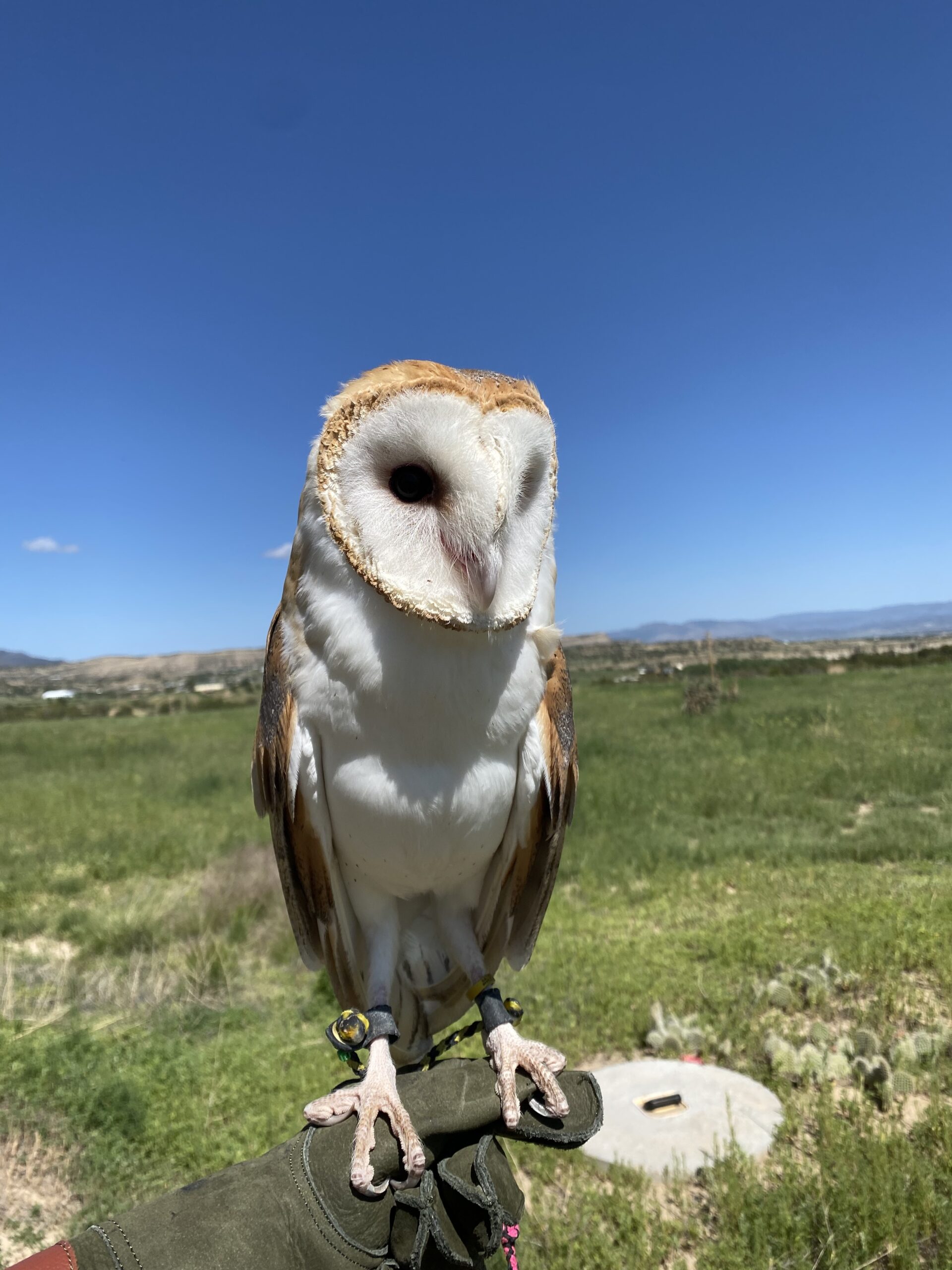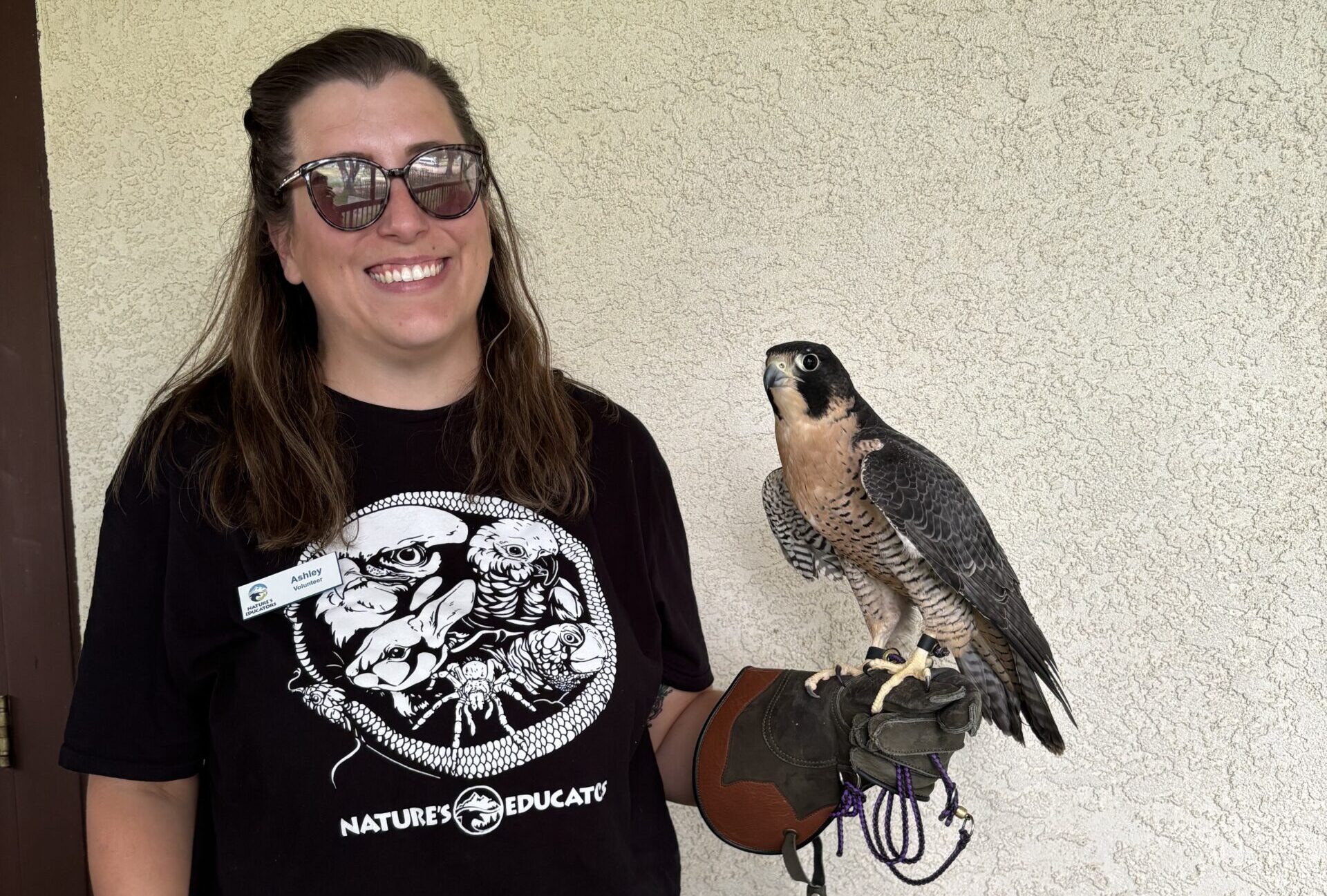
Volunteering is a powerful way to give back to the community, and it also offers significant mental health benefits. I’ve experienced thee benefits of volunteering firsthand through my work with Nature’s Educators, a wildlife education program that specializes in birds of prey and conservation.
Nature’s Educators: Education and Conservation
Nature’s Educators is dedicated to educating the public about the vital role raptors play in our ecosystems. The program features raptor education ambassadors—birds of prey that are unable to be released into the wild due to injuries or other circumstances. These birds serve as powerful symbols of conservation, helping to inspire and educate people across the state.
Through outreach programs, Nature’s Educators brings these incredible birds into schools, community events, and public gatherings. The goal is to foster a greater appreciation for raptors and the importance of protecting their natural habitats. By engaging with the public, Nature’s Educators is making a significant impact on wildlife conservation and environmental awareness. If you are looking for an organization to support, please consider Nature’s Educators!
The Mental Health Benefits of Volunteering
Volunteering offers unique mental health benefits that are supported by extensive research. At Nature’s Educators, working closely with birds of prey has been an incredible experience. Here’s how it’s made a difference in my life and how research supports these benefits:
1. Stress Relief and Mindfulness
Research shows that spending time with animals can reduce cortisol levels, a key indicator of stress, and promote relaxation. A study published in the journal Psychoneuroendocrinology found that animal-assisted interventions significantly lower stress markers in humans. Handling and caring for these birds requires focus, which naturally quiets the mind. The routines of feeding, maintaining enclosures (called “Mews”), and observing their behaviors have become a form of mindfulness practice for me, offering a peaceful escape from daily life.
2. Builds a Sense of Purpose
Volunteering can help contribute to a strong sense of purpose, which is crucial for mental well-being. Research published in the Journal of Positive Psychology suggests that individuals who volunteer regularly experience a greater sense of purpose and life satisfaction. Knowing that my efforts contribute to educating the public about these magnificent creatures and the need for conservation creates a meaningful connection to something larger than myself.
3. Boosts Self-Esteem and Confidence
Volunteering has also been shown to improve self-esteem. A meta-analysis published in the Journal of Social Issues found that volunteers reported higher self-esteem and overall life satisfaction compared to non-volunteers. Volunteering pushes me out of my comfort zone, encouraging personal growth and building confidence.
4. Creating Social Connections
Social connection is a well-known contributor to mental health, and volunteering is a great way to meet like-minded individuals. A study in the American Journal of Public Health found that strong social ties, often formed through volunteering, can decrease feelings of loneliness and depression. At Nature’s Educators, I’ve met people who share my passion for wildlife and conservation. These connections have blossomed into friendships that enrich my life, providing both social support and a shared sense of purpose.
5. Emotional Healing and Resilience
Volunteering can also aid in emotional healing. Research in BMC Public Health found that volunteering can help individuals recover from mental health issues by providing a sense of community and purpose. The bond I’ve formed with the raptors at Nature’s Educators has brought me comfort during challenging times.
A Two-Way Street: Giving and Receiving
While I initially joined Nature’s Educators to cultivate community and learn more about the raptors, I’ve gained so much in return. The experience has deepened my understanding of wildlife, strengthened my mental health, and connected me with an amazing group of people who share my love for wildlife.
Takeaway: Volunteering for Your Mental Health
If you’re seeking ways to boost your mental health, consider volunteering.
Whether it’s with birds of prey at a wildlife education program or another organization that resonates with you, the act of giving your time can have profound benefits.
Even more, research backs this up, showing that volunteering can reduce stress, improve self-esteem, and foster social connections. For me, Nature’s Educators has been a source of joy, well-being, and community.

Beetz, A., Uvnäs-Moberg, K., Julius, H., & Kotrschal, K. (2012). Psychosocial and psychophysiological effects of human-animal interactions: The possible role of oxytocin. Frontiers in Psychology, 3, 234. https://doi.org/10.3389/fpsyg.2012.00234
Thoits, P. A., & Hewitt, L. N. (2001). Volunteer work and well-being. Journal of Health and Social Behavior, 42(2), 115-131. https://doi.org/10.2307/3090173
Piliavin, J. A., & Siegl, E. (2007). Health benefits of volunteering in the Wisconsin Longitudinal Study. Journal of Health and Social Behavior, 48(4), 450-464. https://doi.org/10.1177/002214650704800408
Steptoe, A., Shankar, A., Demakakos, P., & Wardle, J. (2013). Social isolation, loneliness, and all-cause mortality in older men and women. Proceedings of the National Academy of Sciences, 110(15), 5797-5801. https://doi.org/10.1073/pnas.1219686110
Casiday, R., Kinsman, E., Fisher, C., & Bambra, C. (2008). Volunteering and health: What impact does it really have? BMC Public Health, 8(1), 1-13. https://doi.org/10.1186/1471-2458-8-12
Share This Story
Ashley M. Allen, PsyD is a Colorado-based licensed clinical psychologist who sees clients virtually nationwide through PSYPACT. Dr. Allen specializes in LGBTQ+, alternative lifestyles, emotional disorders, ADHD, BPD and chronic illness. Stay tuned to her blog for tips on mental wellness.


